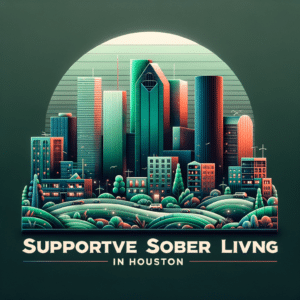Updated on May 14th, 2021
If you enter programs like Alcoholics Anonymous (AA) or enroll in a sober living program with other people in recovery, you may eventually be faced with the task of sharing your recovery story. For some people, the prospect of doing this may be very scary and foreign. If you have trouble opening up to people or you’re not sure how, or even if you want to share your story, this blog is for you.
There are many great reasons to share your recovery story with others, even if you aren’t typically the type of person who chooses to share personal experiences with others.
What Is the Importance of Sharing Your Story in Recovery?
Research has proven that biographical storytelling provides many different benefits in the enhancement of chronic disease recovery.1 Here are four of the primary benefits of sharing your recovery story with others—especially those who are also recovering from addiction.
- Your recovery story holds power. Sharing difficult stories and life experiences with others makes you a stronger person. The experience of telling your story helps you process and heal, and it can even begin to make your recovery from drug and alcohol addiction more real to yourself and all those around you.
- It gives other people hope. The act of sharing your story can give other people in recovery hope and remind them that they’re not alone in their struggles. If you are enrolled in an Austin transitional housing program, chances are, other Austin sober living home residents have dealt with (or are currently dealing with) some of the same struggles you have. This may be a unique opportunity for you to inspire others with your own story of facing and overcoming obstacles.
- It helps you build community. Being open, honest, and vulnerable with others promotes real and lasting connections. In sharing your recovery story with other sober living residents, you’ll begin to build relationships that are meaningful and mutually beneficial. Openly sharing thoughts and experiences in regards to your sobriety will also encourage accountability among yourself and those that you share with.
- It helps you find your own voice. According to one Psychology Today author, sharing personal experiences also empowers you to make sense of the things that have happened in your life and learn how to communicate those things to others.2 Sharing your recovery story with other sober living residents may also help you think about how all the experiences in your life have shaped who you are today and who you will continue to become.
Sharing Your Story In Recovery: 5 Tips
Sharing your addiction recovery story is not a required part of living in a Eudaimonia sober living home or enrolling in a transitional living program. However, if you do choose to share with the other sober living residents in your home, it is entirely up to you how you do it.
For those who would like a few recommendations on how to share, here are a few key suggestions. Just remember there are no steadfast rules for how, when or if you share. That’s up to you. These tips may just help you get started.
- Don’t be afraid to get personal. Being vulnerable is difficult, but it’s okay to share the honest truth about your life before, during, and after active addiction. One of our alumni shared a particularly painful moment when he used heroin in front of his mom out of desperation. The shame and disbelief he feels when talking about that moment do not keep him from sharing. Instead, he uses it as a way to illustrate what “rock bottom” looked like for him and how his life has changed since then.
- Be cautious not to get lost in the details. If you choose to share your story in a group meeting setting, just remember that you probably won’t have two hours to delve into the deep history of your childhood, despite the impact those childhood experiences had on your addiction. If you want to share all those details with another sober living resident, they may be better suited for a one-on-one conversation. Ideally, the amount of time you spend sharing your recovery story should not last longer than 20 to 25 minutes, if you’re sharing at a 12-Step meeting. Otherwise, you may risk running too long.
- If your family played a role in getting you into treatment, make sure to share that. Some people recovering from addiction may have only initially entered treatment at the urging of their family members or friends. Repairing damaged relationships after rehab can be difficult, so sharing your experience with family before and after rehab treatment may help encourage someone else to make amends with their loved ones too. If you’re sharing your story with someone who is still in active addiction, this may also help encourage them to listen to the concerns of their family members and enroll in a rehab or sober living program.
- Don’t skip over any relapses. If you’ve relapsed once or several times before, sharing what you learned from these experiences can be extremely valuable, especially for other sober living residents. Some people enrolled in a transitional housing program may find themselves struggling with lapses or full relapses at some point and may need to hear that it is possible to get back on track again.
- Be truthful about what life is like now. Life in recovery isn’t always flowers and sunshine. It’s difficult and it may not always be the sober life you envisioned for yourself. You don’t have to lie about being happy all the time or having everything figured out. Being truthful about your post-addiction experiences may help others who are also struggling with things like depression, anxiety, or who are struggling to re-define their new reality in sobriety.
How to Tell Your Recovery Story
Telling your story in AA, at a rehab center, or for a public event may sound like something you never want to do. Although it’s a daunting task and downright scary for some people, sharing sober recovery stories with other residents in recovery is a powerful way to influence others and gain freedom from shame and secrecy.
You’ve likely heard other stories of getting sober, but you may not know how to go about sharing your own. Sometimes, having a structured format for how to tell your recovery story can be helpful and may also alleviate your nerves if you get stage fright or don’t particularly enjoy public speaking.
Here’s a brief outline that can help you think about how you want to structure your time speaking and telling your story in AA or elsewhere.
- Take some time to plan and rehearse what you want to say. Before you share your recovery story, be intentional about planning out what you will say. You can even write down a few bullet points to keep yourself on track if you think that will help. Rehearse your story to yourself or with a close friend to get an idea of how long it will take and trim any excess details if it takes more than 25 minutes for you to share. Taking the time to prepare will help you feel more confident and if you struggle with stage fright, this is a big deal!
- Introduce yourself. You don’t have to share your full name if you don’t want to. Simply tell the others who you are and maybe even where you’re from if you want. Let the others know how you’ve been impacted by addiction (i.e. “I am a recovering alcoholic.” or “I’ve lived with cocaine addiction for 10 years.”) and let everyone know why you want to share, such as to provide hope and encouragement.
- Share what happened before you got help. It’s a good idea not to spend too much time telling this part of your story, but try to think about the main highlights you could share, such as being in and out of treatment centers, going to the hospital for overdoses, or being arrested. Briefly sharing these highlights offers context into the severity of your addiction and how it impacted your life and the lives of your loved ones. If there was a certain event or circumstance that served as a breaking point and made you decide that it was time to get help, that’s also another great highlight to share.
- Tell everyone what helped you get sober. Spend the majority of your speaking time telling your audience what has helped you. What did you experience in treatment? How did the treatment center staff, your sponsors, and your peers help guide your recovery? What important lessons have you learned? How have you changed since you’ve gotten sober? What do your daily habits look like now that you’re sober? These are all great topics to cover when you share.
- Briefly talk about the hope of recovery. A great way to close out your story is to encourage the individuals you’re speaking to. Let them know that full recovery is possible and that your story is just an example. Be truthful and remind them that recovery is challenging, but if they’re struggling, that they are not alone and there are people out there who care, including you.
Sharing your addiction recovery story with other Austin sober living residents is a powerful way to support and encourage others while also maintaining accountability in recovery. Call Eudaimonia Recovery Homes today to learn more about our Austin sober living homes for men and women or check out this powerful story of addiction and recovery from one of our alumni members.
References:
- https://www.ncbi.nlm.nih.gov/pmc/articles/PMC4940988/
- https://www.psychologytoday.com/blog/the-web-violence/201309/resilience-and-4-benefits-sharing-your-story





